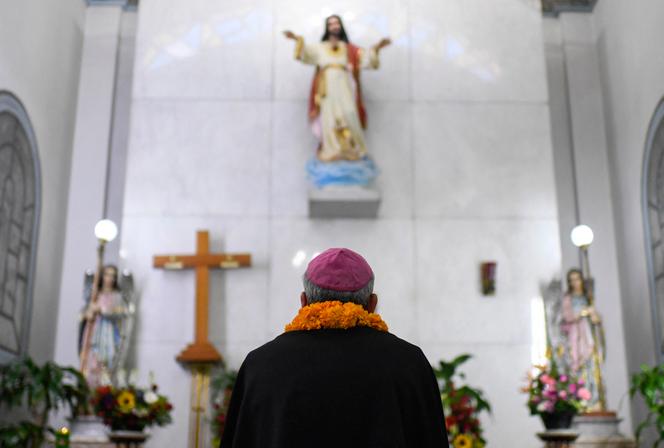


Talks between bishops and drug traffickers are hard to imagine, yet they did occur in the mountains of Guerrero, one of Mexico's most violent states. The bishop of the diocese of Chilpancingo-Chilapa, José de Jesus Gonzalez, known for making a habit of his post-mass conversations with select journalists, revealed the existence of those clandestine meetings to
local media on February 14.
The clergyman went on to specify that a total of four bishops from Guerrero participated in the "mediations with criminal groups" aimed at ensuring peace in the region, or at least, securing a truce. "We have sought dialogue with the leaders of these groups in vain. We are going to continue these meetings, following the recommendations of Pope Francis, who urges us not to stand idly by in the face of violence," the bishop informed local correspondents, including those from the weekly publication Proceso.
Subsequently, on Thursday, February 22, and without any official statement from the Church, two of the criminal groups fighting over the territory – La Familia Michoacana and Los Tlacos – reportedly agreed to put a stop to their turf war, which had resulted in another 12 fatalities just days prior, on February 19 and 20. "Sources close to Thursday's negotiations said that the reconciliation between the two groups was possible after the first attempt at negotiation led by the Catholic Church," said the daily Milenio.
The day before, Father José Filiberto Velazquez also took to social media to announce "the imminence of good news against violence." The clergyman, who has been running a human rights NGO in the state capital for the past six years, played a pivotal role in brokering another truce, this time between Los Tlacos and Los Ardillos following 10 days of clashes in the Guerrero state capital, Chilpancingo. "I don't know if it was God or the devil who gave me the idea, but when I saw the state of our town, I decided that we had to act, and as I had the phones of the leaders of both groups, I put them in touch," said Father Velazquez, reached by telephone.
In early February, the factions of Los Tlacos and Los Ardillos clashed in broad daylight and turned Chilpancingo into a ghost town. The city became paralyzed, with transportation halted, shops shuttered, and schools abandoned. The clashes, which began around the buses that the two groups raided, cost the lives of seven drivers. "The problem is that the Tlacos and Ardillos are not only in the drug business but also in public transportation. They own businesses and sometimes find themselves opposite each other in the same market," said the priest.
You have 50.3% of this article left to read. The rest is for subscribers only.
